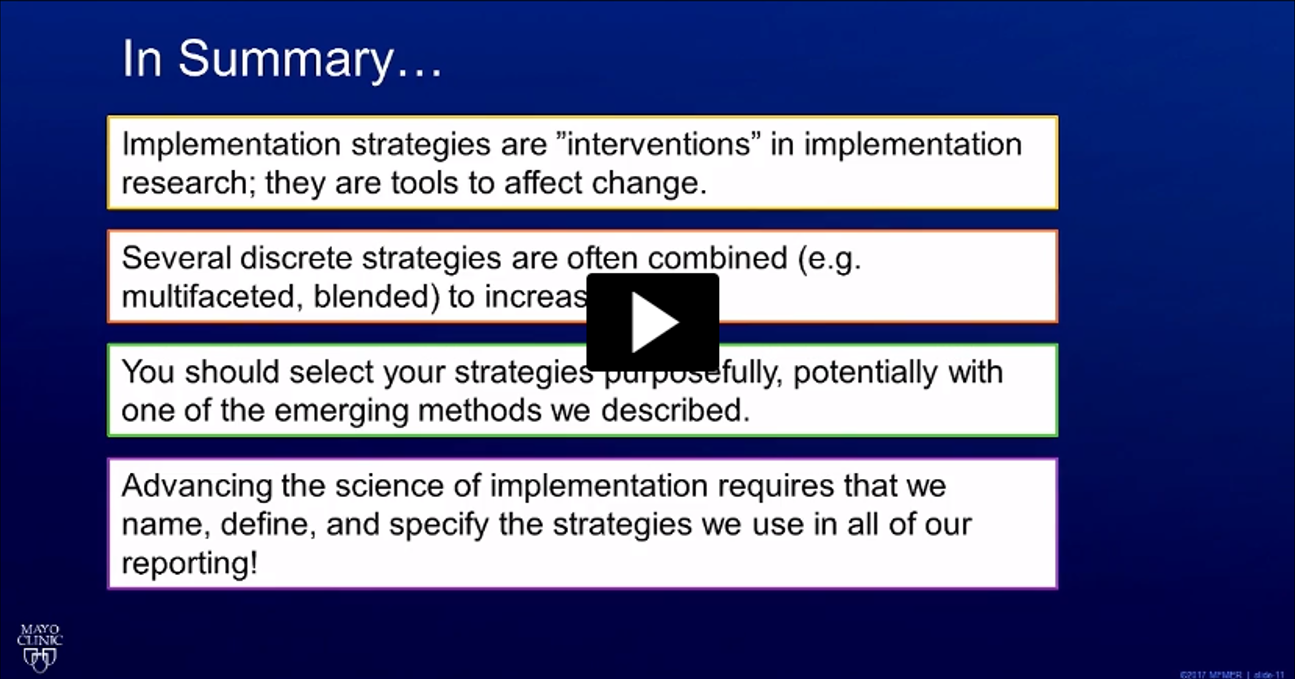Blog
"What we do as scientists is irrelevant without D&I"
Wed. 24. Jun 2020 14:19
What is dissemination and implementation (D&I) research and why do we do it? This is the title of the first video in a curriculum developed by the Mayo Clinic Dissemination and Implementation research Methods Working InTereSt group (DIMwits).
Basically D&I lies in the difference between generating knowledge and applying it, and draws upon insights from many other sciences, so-called sciences of change. The curriculum consists of seven video modules taking the viewer through everything from the role of theory in D&I research to examples of study designs appropriate for different focus areas and purposes of any given study.
The videos deal with two related research fields: dissemination research and implementation research.
Dissemination research is defined as “the scientific study of the targeted distribution of information and intervention materials to a specific public health or clinical practice audience for the purpose of understanding how best to spread and sustain the knowledge acquired to adopt and deploy evidence-based interventions”.
Implementation research is defined as “the scientific study of the process of intervention adoption and use with the purpose of developing a knowledge base about “how” interventions become normalised in real-world settings”.
Stating that “what we do as scientists is irrelevant without D&I”, the videos take you through examples, such as Alexander Fleming’s discovery of penicillin, underlining the importance of the application of research results after discovery. In Fleming’s case, many lives were lost because of the delay from the discovery to the actual implementation and general use. While not all research, not even all in healthcare, relates to life and death directly, we can all benefit from increased application of sound research results.
Just as with the DIMwits, this perspective inherent in the research field is what drives ImpleMentAll. We study the implementation of iCBT, but our goal is to generate results (including the ItFits-toolkit) generally applicable to eHealth and clinical innovations of any kind. So when we came across this curriculum, we found it to be both interesting and important stuff.
“If you intend to contribute to the field and do D&I research, the curriculum will provide you with an important foundation – if not, it will still provide valuable insight that will help you think proactively about issues of dissemination and implementation and how to optimise your research for success and impact.” – Quote from video 1
On top of educating the viewers on relevant aspects of D&I research, the curriculum also guides researchers to theoretical approaches used for different processes within implementation science, e.g. NPT (understanding and/or explaining what influences implementation outcomes) and RE-AIM (evaluating implementation). On top of this, it points to an interactive webtool designed to help researchers and practitioners navigate the landscape of D&I models (https://dissemination-implementation.org/index.aspx).
The theories and research highlighted in the videos include work done by e.g. Tracy Finch, Colin Powell, and Enola Proctor, all well known in the field and to our project. The curriculum takes you through e.g. study designs appropriate to different focus areas in D&I research, including the Stepped-Wedge Randomised Trial approach applied in ImpleMentAll. This flexible design allows for comparison across clusters as well as for each cluster to act as their own historical control, while allowing you to do research and implement at the same time, as no clusters are randomised to a control condition.
Our discovery of these videos inspired this post on implementation science resources, of which we are sure that there many more – papers, videos, Twitter profiles, anything really. So, hit us with your best one! Maybe you made one yourself or just came across one recently.
We’d love to know more and to share with the community.

